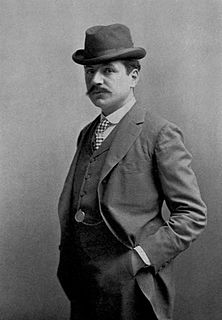A Quote by Edith Wharton
...every literature, in its main lines, reflects the chief characteristics of the people for whom, and about whom, it is written.
Related Quotes
Wherein lies a poet's claim to originality? That he invents his incidents? No. That he was present when his episodes had their birth? No. That he was first to repeat them? No. None of these things has any value. He confers on them their only originality that has any value, and that is his way of telling them." Mark Twain "...every literature, in its main lines, reflects the chief characteristics of the people for whom, and about whom, it is written.
Before prayer, endeavour to realise Whose Presence you are approaching and to Whom you are about to speak, keeping in mind Whom you are addressing. If our lives were a thousand times as long as they are we should never fully understand how we ought to behave towards God, before Whom the very Angels tremble, Who can do all He wills, and with Whom to wish is to accomplish.
Actually, I never tell for whom my songs are written. It's a kind of superstition! I started writing songs for not having the courage to say certain things in people's faces and started to put these feelings on paper... Over the years, became a mania and then I never talk about for whom they are made.
The being who, for most men, is the source of the most lively, and even, be it said, to the shame of philosophical delights, the most lasting joys; the being towards or for whom all their efforts tend for whom and by whom fortunes are made and lost; for whom, but especially by whom, artists and poets compose their most delicate jewels; from whom flow the most enervating pleasures and the most enriching sufferings - woman, in a word, is not, for the artist in general... only the female of the human species. She is rather a divinity, a star.





































